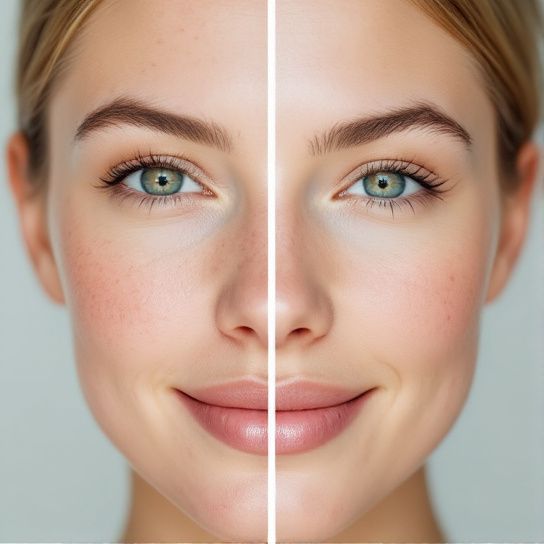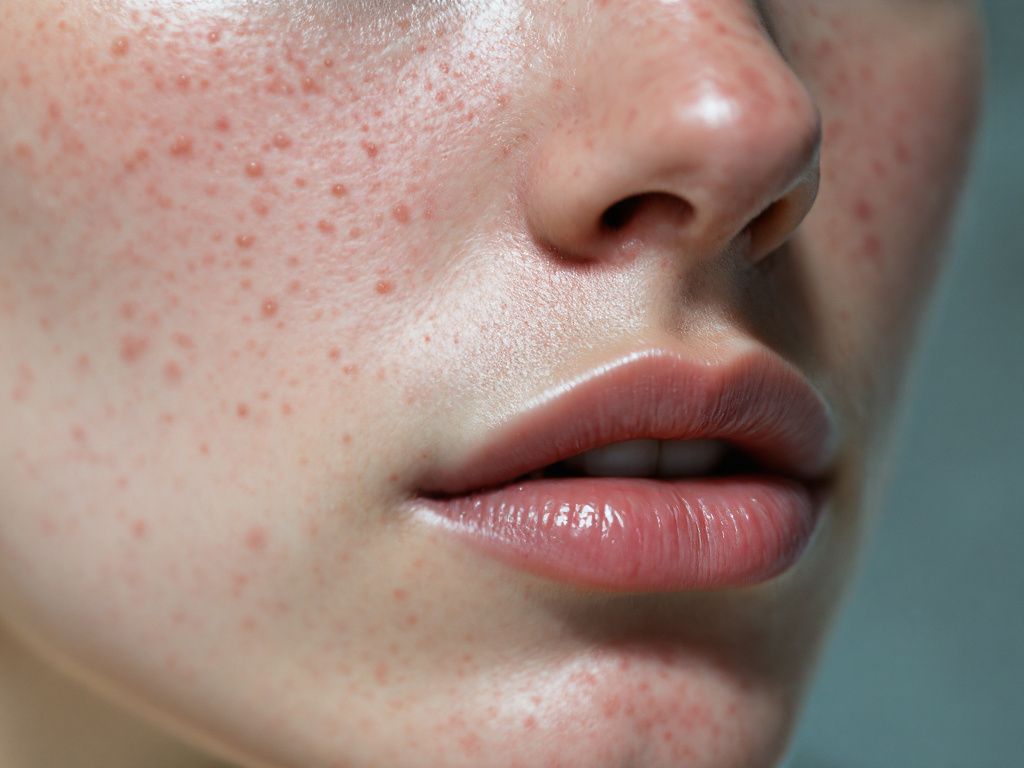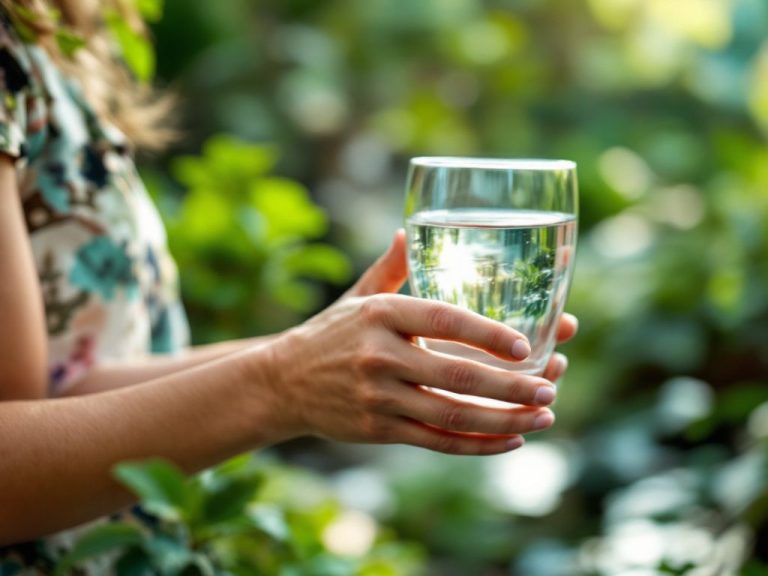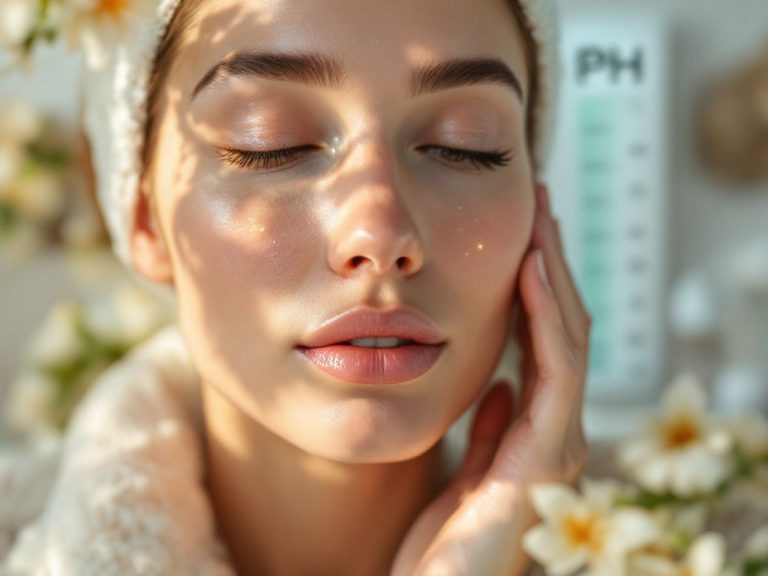Hey there! If you’re here, maybe it’s because you’ve been wondering, “Why do people get acne?” It’s a question that’s far more common than you might think. Acne plagues many of us at some point in our lives with those sudden, uninvited breakouts. You might feel like you’ve tried everything—from magical creams to seemingly promising face washes, but alas, those pesky bumps persist. So, what gives?
Let’s embark on a journey through breakout science, exploring the sneaky culprits behind acne’s unwanted appearances. We’ll crack open the science behind those pesky pimples, and along the way, we’ll throw in some tips you won’t want to miss. Ready? Let’s jump in!
Table of Contents
ToggleWhat Exactly is Acne?
First things first, let’s set the stage with a bit of basic understanding. Acne is pretty much the umbrella term for a pesky skin condition that typically involves pimples, blackheads, and sometimes painfully inflamed cysts that make you want to scream when you look in the mirror. It’s not just a teenage problem either—many adults find themselves in breakout battles well into their 30s and beyond.
The Science in Simple Terms
Acne starts when your hair follicles get clogged with oil (a natural substance known as sebum) and dead skin cells. Bacteria love this environment, multiply, and contribute to redness and inflammation—voilà, a pimple is born. Now, let’s delve deeper into why these scenarios unfold.
Digging Deeper: Acne Causes
Picture this scenario: Your skin is like a bustling subway station, with everyone (like oil, cells, and bacteria) having a specific role. Sometimes, things can get a little hectic. Here’s how it plays out:
Hormones Calling the Shots
You can point a finger at those hormones, especially androgens. They come into play big time during puberty, stressing your oil glands to rev their engines and produce more sebum. Unsurprisingly, more oil means higher chances of clogged pores.

**Casual Aside:** Have you ever noticed breakouts just before your period? Hormones have a party, and your face is the venue. Annoying but true!
Genetic Predispositions
Blame it on your genes, seriously. If Mom or Dad battled with acne, odds are you’d encounter it too. Acne tends to be hereditary, so keep in mind if you’re fighting genetics along with everything else.
Lifestyle and Environment
Here’s where it gets a bit more tactical. Your daily choices—diet, skincare habits, stress levels—all contribute to the acne mystery.
- Diet: High dairy and sugar intake can contribute to breakouts—research says there’s a link.
- Stress: Ever noticed a breakout before a big exam or a major event? Stress could be your invisible enemy.
- Skincare Routine: Not all products are friends. Harsh chemicals might just be doing more harm than good.
Mythbusting Acne
Alright, time for a mini game: Fact or Fiction.
- Chocolate Causes Acne: Fiction. There’s no direct scientific link. However, if your body’s sensitive to sugar or dairy, it might play a part.
- Dirty Skin Causes Acne: Fiction. It’s not about cleanliness but biology. Over-washing can actually irritate your skin more.
- Sun Exposure Can Cure Acne: Fiction. While a tan might camouflage blemishes, UV rays can damage skin and worsen acne over time.
Preventing Acne: What You Can Do
While we can’t wholly eliminate the genetic and hormonal factors, there are some tactics up your sleeve for dodging (or at least managing) acne flare-ups. Believe me on this one, they’re practical!

Building a Balanced Skincare Routine
Your skin craves routine like your morning coffee. The ritual doesn’t need to be fancy.
Step 1: Cleansing
A gentle cleanser twice daily is the foundation. None of those harsh ingredients that sound like they belong in a chemistry lab—keeping it simple is key.
Step 2: Exfoliation (but Gently)
Aim for 1-2 times a week with a mild exfoliator to clear out dead skin cells. Remember, exfoliating too often isn’t great—it’ll likely lead to more irritation and breakouts.
Step 3: Moisturizing
Even oily skin needs hydration; an oil-free, non-comedogenic moisturizer will do the trick.
Step 4: Sun Protection
Sunscreen is a non-negotiable. Look for one that’s suited for your skin type to avoid potential blockage dramas.
Diet Adjustments
It’s true your skin can react to what your tummy digests, so staying clear of those really sugary and overly processed foods might actually work wonders over time.

- Omega-3s: Incorporate things like fish, walnuts, or flaxseeds. Helpful for reducing inflammation.
- Hydration: Drink your water. Sometimes we forget that youthful glow is water-driven.
Stress Management
You can’t sidestep it entirely but take control. Regular exercise, meditation, or even a dance party in your living room—whatever suits you, make it a routine.
Available Treatments
Let’s face it, sometimes we need more than home remedies. When it feels like a battle you’re struggling to win, here are treatment paths to explore:
- Topical Treatments: Retinoids, benzoyl peroxide, or salicylic acid can help manage acne, but remember—the gentler, the better.
- Prescription Medications: Dermatologists might suggest medications, such as antibiotics, to reduce bacteria and inflammation.
- Professional Procedures: Chemical peels and laser therapy are options when other treatments come up short.
Key Takeaways
- Understand Your Skin: Acne isn’t just a surface issue; it’s rooted in biological processes, so adopt an inside-out strategy.
- Be Consistent: Adopt a skincare routine and narrow habits that benefit and stabilize your skin’s ecosystem.
- Plan with Patience: Sustainable results call for consistent and long-term strategies rather than overnight miracles.
- Consultation Is Key: When acne’s too stubborn to tackle alone, seeking professional help can tailor treatment to your skin’s unique demands.
So, here’s a somewhat messy but hopefully informative glimpse into why those blemishes get involved in your skin’s narrative. Breaking the noted complex chemistry isn’t always straightforward, but navigating acne with these insights and adjustments can help in managing those unwelcome guests a bit better. Your skin story is all about persistence and understanding—more than anything, it’s the consistent little efforts that count.
Feel empowered in your journey against acne, and remember, you’re not alone in this. Your skin has a tale to tell, one day at a time.
Frequently Asked Questions
What causes acne?
Acne is caused by the blockage of hair follicles due to an overproduction of oil (sebum), a buildup of dead skin cells, and the presence of bacteria. These blockages can lead to various types of acne lesions, including whiteheads, blackheads, pimples, and cysts[1][2][5).
Who is most likely to get acne?
Acne is most common among teenagers and young adults due to hormonal changes, particularly the increase in androgen hormones like testosterone during puberty. However, acne can affect people of all ages, and adult acne is more common in women, often linked to hormonal fluctuations during menstruation, pregnancy, or menopause[2][3][5).
Can diet or hygiene affect acne?
There is no strong evidence that diet directly causes acne, although some foods like dairy products, sugary, and starchy foods may worsen it. Poor hygiene does not cause acne, and excessive cleansing can actually irritate the skin and make acne worse[2][3][5).
Is acne hereditary?
Yes, acne can run in families. If both parents had acne, it is more likely that their children will also develop acne, and possibly more severe forms of it at an earlier age[2][5).
References







